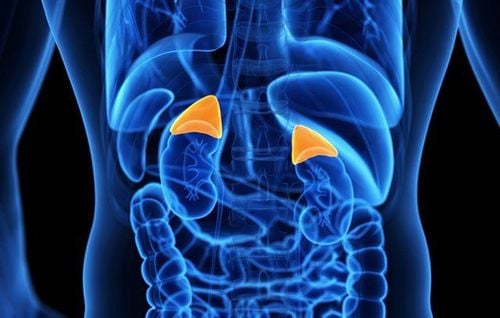This is an automatically translated article.
Exercise is always one of the best known health training methods with countless benefits. However, that doesn't mean the more you practice, the better. Exercising too much or exercising too hard can be counterproductive, exposing the body to many dangerous harms.
1. What is considered overexertion?
Depending on the physical condition, age or type of exercise of each person, the definition of movement and excessive exercise will have certain differences.
In general, an adult should spend 5 hours per week at moderate intensity and about 2.5 hours at high intensity. In addition, for children and adolescents from 6 to 17 years old, they should exercise at least 3 times a week, about 60 minutes each time. Thus, cases of exercising more than average are considered overactive. However, with that said, this definition can depend on each person's physical condition.
To know if you are doing too much exercise, you can rely on some of the following signs:
Feeling exhausted after exercise: this is the clearest sign that your body is working not enough energy. Poor sleep, erratic: you find it difficult to fall asleep, sleep not deeply and feel tired when you wake up. This means your body is having too much cortisol – a stress hormone released when you exercise excessively. Feeling depressed: Proper and moderate exercise will help the body release endorphins that create a feeling of joy and happiness. However, when the training intensity is too high and there is not enough time for the body to recover between exercises, it will lead to feelings of sadness and depression. Vulnerability: if you have a good immune system, but after regular exercise, you often get illnesses like colds and flu, this could also be one of the signs that your exercise regimen Yours is not reasonable. Irritability Poor coordination Poor sex drive

Ham muốn tình dục suy giảm ở người vận động quá sức
2. How harmful is excessive exercise?
2.1 Irregular heart rhythm Scientists have shown that regular endurance sports can lead to “cardiac toxicity” – permanent changes in the structure of the heart muscle.
These changes are responsible for the abnormal heart rhythm (arrhythmia) and increase the risk of stroke due to heart failure. According to research published in 2013 by the European Heart Journal, overuse of exercise can adversely affect the health of the cardiovascular system, especially in people with a history of cardiovascular disease. family with an irregular heart rhythm.
2.2 Weakened Immune System Cortisol is a hormone secreted by the adrenal glands during physical stress. This hormone stimulates the production of new glucose (gluconeogenesis) in the liver, while supporting the process of protein breakdown in the muscle to take place more efficiently.
In principle, this is perfectly fine. Recently, however, scientists have proven that the disadvantages of cortisol even outweigh its benefits.
The immunosuppressive effect of cortisol helps reduce redness and swelling, but puts people with high levels of cortisol at high risk of disease.

Hệ miễn dịch suy giảm nếu vận động quá sức
2.3 Weak bones Due to the interference of cortisol in bone health, people who are physically active can face a high risk of illness, even the risk of bed paralysis is twice as high compared to the general population. . When the hormone cortisol is present in the blood, less bone tissue is accumulated than bone tissue is decomposed. This makes fractures and fractures more likely in these people.
Decrease in bone density will inevitably lead to other serious bone diseases such as arthritis, osteoporosis. Surely this will be a terrifying obsession for those who exercise too much when they are old.
2.4 Impact on mental health According to research, people who are regularly over-exercised have biochemical markers equivalent to those with chronic depression. Not only are the changes in the secretion of tryptophan and serotonin similar, but both people with depression and people who exercise too much have similar behavioral manifestations such as irritability, insomnia, and poor motivation.
Statistics from the Technical University of Munich show that the risk of depression in athletes who train too hard increases by 20%.

Khi sức khỏe có dấu hiệu bất thường, mọi người nên đến gặp bác sĩ
Article referenced source: Webmd.com
MORE:
Use of creatine in sports Pay attention to achilles tendonitis when playing sports 4 groups of most common sports injuries













